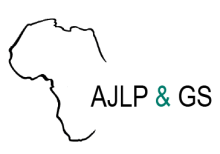Land Library Search
Through our robust search engine, you can search for any item of the over 73,000 highly curated resources in the Land Library.
If you would like to find an overview of what is possible, feel free to peruse the Search Guide.
/ library resources
Showing items 1 through 9 of 294.Les meilleures pratiques autour de cinq communautés de pratique thématiques ont été mises en évidence dans les flux de connaissances, y compris des thèmes transversaux tels que la résilience climatique, l'inclusion du genre et la numérisation.
Au Burkina Faso, depuis ces trente dernières années, le foncier fait l’objet d’une attention particulière, tant au niveau des pouvoirs publics que des communautés villageoises, en raison de son importance stratégique pour le développement socioéconomique et la préservation de la paix sociale et d
In Africa, particularly in Senegal, the issue of gender in land governance remains an equation when it comes to access to land.
While international trade in agricultural commodities can spur economic development especially where governance is strong, there are also concerns about the local impacts of commodity production and their distribution on the environment and on people.
Fruits & vegetable value chains (F&V VC) in Nigeria hold significant potential to continue toward sustainable, inclusive food system transformation.
A food system includes all elements (environment, people, inputs, processes, infrastructures, institutions, etc.) and activities that relate to the production, processing, distribution, preparation, and consumption of food, and the outputs of these activities, including socioeconomic and environm
The cattle sector is strategic for both the economic development and food security of Africa, but the low availability and quality of forage puts the most vulnerable population at risk.
Management of postharvest food loss and waste (FLW) is an important strategy in efforts to sustainably meet the food and nutrition needs of the world’s growing population. Sustainable food systems are critical to achieving food security and nutrition for all, now and in the future.
Agricultural inputs, including fertilizers, seeds, breeding stock, crop protection chemicals, machinery, irrigation, and knowledge, are key to innovation and productivity improvement, and are the backbone of any agricultural revolution.




